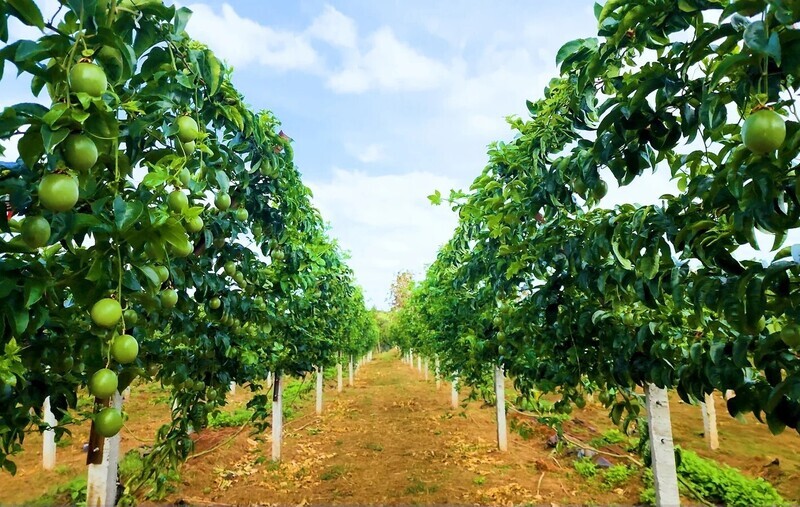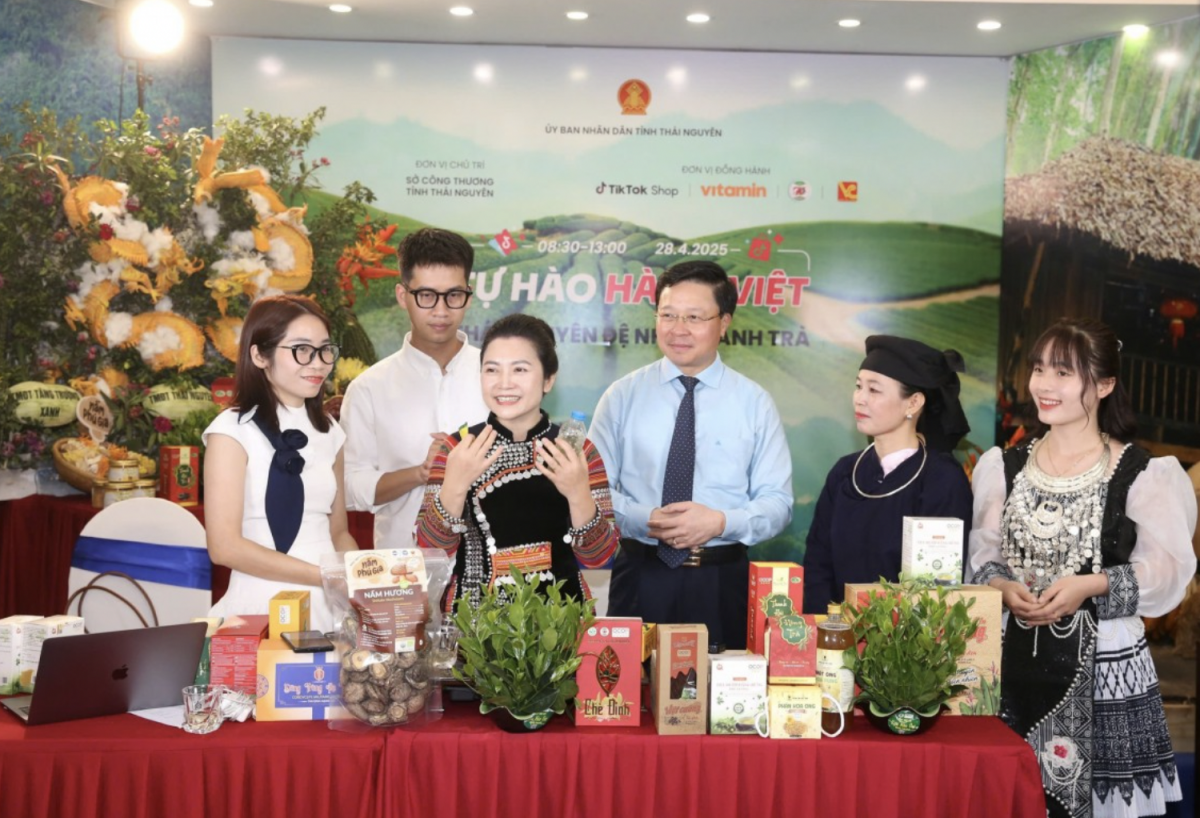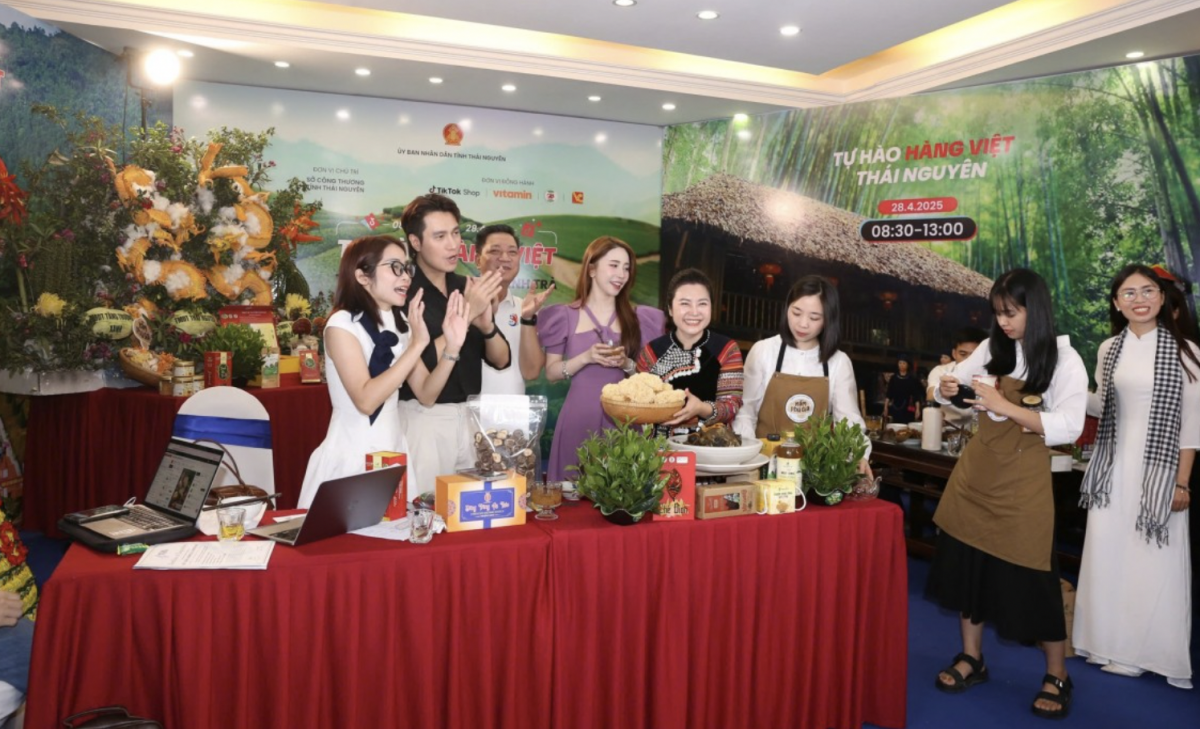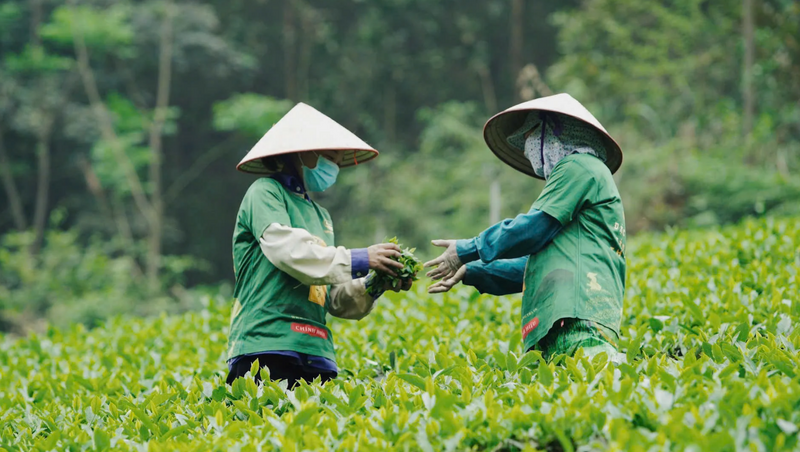
Vietnam’s fruit and vegetable exports to EU triple in four years
19:05 | 23/03/2025 20:40 | 23/02/2026Trade
Opening market access for highland products
From culturally rich products such as Shan Tuyet tea, wild honey, glass noodles, and handwoven brocade, ethnic minority and highland specialties are undergoing a powerful transformation. No longer confined by geography, many of these products have found their place in broader markets thanks to omnichannel retail models that combine traditional in-person sales with e-commerce. This approach not only offers a new solution for market access but also lays a vital foundation for sustainably building local brands.
A prime example is Hao Dat Tea Cooperative in Tan Cuong Commune, Thai Nguyen City, the first in the province to achieve a 5-star OCOP (One Commune One Product) certification. According to Dao Thanh Hao, Director of the cooperative, the entire tea production process has been digitized and stored on a cloud-based data system. Consumers can scan the QR code on each product to access detailed information on cultivation, harvesting, and processing.
 |
| According to Nguyen Ba Chinh, Director of the Thai Nguyen Department of Industry and Trade, digital transformation and omnichannel retail are like a “digital expressway” enabling local agricultural and specialty products to go further, faster, and more efficiently. Photo: Thao Nguyen |
“In addition to welcoming tourists to experience tea-making firsthand, we’ve also invested in online sales, livestreaming on TikTok, and marketing through Shopee to broaden market reach. Our specialty tea products are not only showcased at trade fairs but also regularly delivered to consumers in major cities,” said the Director.
Similarly, La Bang Tea Cooperative in Dai Tu District has been actively distributing its products via digital platforms while maintaining OCOP introduction points. Nguyen Thi Hai, Director of the Cooperative, shared: “Our La Bang Tea products are now sold nationwide. Alongside traditional sales methods, we also list our products on e-commerce platforms to better connect with consumers.” This approach helps the cooperative retain long-time customers while reaching new, tech-savvy audiences online.
Meanwhile, many small businesses in Phu Binh and Dai Tu districts have adapted to omnichannel sales, combining stalls at traditional markets with online orders via digital platforms. This shift marks a transition from passive production to proactive market engagement, and from traditional retail to integrated models that align with modern consumption trends.
This is not an isolated story. In other mountainous districts such as Dinh Hoa and Vo Nhai, the combination of traditional and digital commerce is becoming more common. Organic tea, glass noodles, and dried shiitake mushrooms are now available on platforms like ShopeeFarm and TikTok Shop.
 |
| From culturally rich products such as Shan Tuyet tea, wild honey, glass noodles, and handwoven brocade, ethnic minority and highland specialties are undergoing a powerful transformation. Photo: Vietnamnet |
Omnichannel retailing, a model that fits local realities
The adoption of omnichannel retailing in ethnic minority and mountainous areas goes beyond simply putting products online. It involves a flexible combination of familiar traditional channels and booming digital platforms. Each complements the other, helping products retain their cultural essence while reaching a new generation of consumers.
In Thai Nguyen, home to more than 248 OCOP-certified products, many of which are tea, the model has proven effective. Its success in mountainous regions is due to three main factors: (1) its adaptability to local terrain and context; (2) its ability to showcase cultural identity, something digital platforms actively seek; and (3) lower operating costs compared to establishing physical stores.
Despite its proven effectiveness, the implementation of the omnichannel retail model in mountainous areas still faces numerous challenges. The first is digital transformation capacity: many local residents remain hesitant about using technology, lack order processing skills, and have limited exposure to marketing concepts. Second, inadequate transport and logistics infrastructure leads to high delivery costs. Third, current support policies remain fragmented and lack coordination among key sectors such as agriculture, industry and trade, culture, tourism, and information and communications.
 |
Another highlight is the launch of a Digital Arts undergraduate program aimed at building a high-quality workforce for the creative and digital communications industries, sectors that are rapidly expanding. Photo: Thao Nguyen |
According to Nguyen Ba Chinh, Director of the Thai Nguyen Department of Industry and Trade, digital transformation and omnichannel retail are like a “digital expressway” enabling local agricultural and specialty products to go further, faster, and more efficiently. To achieve this, strong digital infrastructure must be paired with consistent policies across all administrative levels, supporting residents not only in terms of technology but also in market access thinking.
“Digital transformation cannot stop at slogans, it must start with people. We firmly believe that for e-commerce to develop in a sustainable manner, efforts must begin at the grassroots level, with digital skills, digital storefronts, and the awareness and operational capacity of local residents and businesses,” emphasized the Director of the Thai Nguyen Department of Industry and Trade.
In this spirit, the province has launched a series of highly practical training programs tailored to the skill levels, needs, and specific characteristics of different local groups. These include hands-on training on how to operate storefronts on Shopee, equipping businesses and cooperatives with skills to manage product listings, optimize content, and handle online customer service.
Additionally, digital business skill courses are being widely implemented, guiding individuals and small production units on how to apply informatiom technology, use smartphones, and conduct livestream sales to reach digital consumers.
Another highlight is the launch of a Digital Arts undergraduate program aimed at building a high-quality workforce for the creative and digital communications industries, sectors that are rapidly expanding.
Moreover, Thai Nguyen Province’s 2021-2025 digital transformation program also targets digital skills development for the entire population through Massive Open Online Courses (MOOCs), in partnership with businesses and technology organizations, to retrain the workforce, especially in industrial zones.
These initiatives reflect the province’s strong commitment to enhancing digital capacity for communities and supporting individuals and enterprises in adapting to the online business environment and digital transformation trends.
 |
| Recently, Thai Nguyen Province continued to make its mark on the national agricultural map, with two more products recognized as national 5-star OCOP items. Photo: Hoang Cuong |
Strengthening market position for highland products
To ensure highland specialties secure a lasting place in larger markets, short-term campaigns are not enough. It is essential to build a sustainable value chain with the participation of key stakeholders: local residents, cooperatives, e-commerce enterprises, government authorities, and media organizations. Each link plays a decisive role.
It is especially important to tap into the growing trends of green and responsible consumption. Products such as organic tea, wild herbs, and brocade made from recycled materials can absolutely compete with high-end imported goods, provided they are backed by compelling stories, transparent origins, and targeted customer outreach.
In 2025, many localities have proactively piloted the ‘Digital Highland Market’ model, integrating online and offline stalls with e-payments and smart delivery systems. If implemented effectively, this could lay the foundation for a modern retail ecosystem that retains local identity while ensuring inclusive and sustainable development.
Recently, Thai Nguyen Province continued to make its mark on the national agricultural map, with two more products recognized as national 5-star OCOP items. These are the Dinh tea product of Hao Dat Tea Cooperative and the Tay ethnic cultural tourism service “Thai Hai Village,” developed by Thai Hai Co., Ltd. in Thinh Duc Commune, Thai Nguyen City. With this addition, Thai Nguyen now boasts four 5-star OCOP products, a clear testament to the province’s strong progress in developing signature products closely linked to local raw material areas, indigenous culture, and community strengths. After six rounds of OCOP evaluation, the province has had 313 products certified, including 195 tea products which have shaped Thai Nguyen’s reputation as the “tea capital of Vietnam.” The remaining products are mainly processed foods and traditional handicrafts, creating a diverse and sustainable landscape for the OCOP program across the province. |

19:05 | 23/03/2025 20:40 | 23/02/2026Trade

19:05 | 23/03/2025 20:38 | 23/02/2026Trade

19:05 | 23/03/2025 20:30 | 23/02/2026News and Events

19:05 | 23/03/2025 20:29 | 23/02/2026News and Events

19:05 | 23/03/2025 20:14 | 22/02/2026News and Events